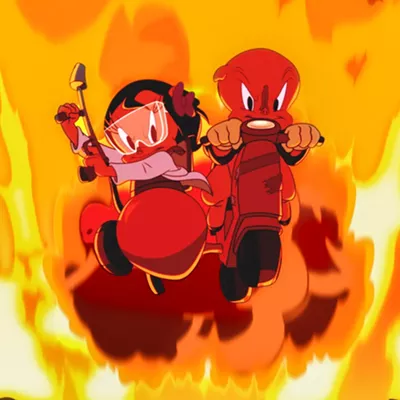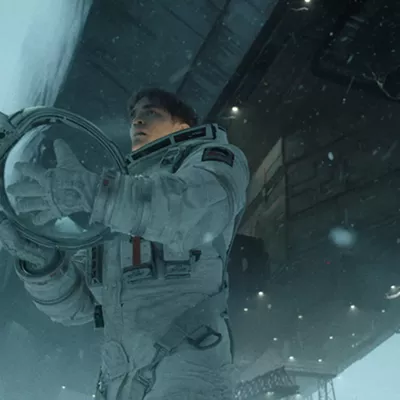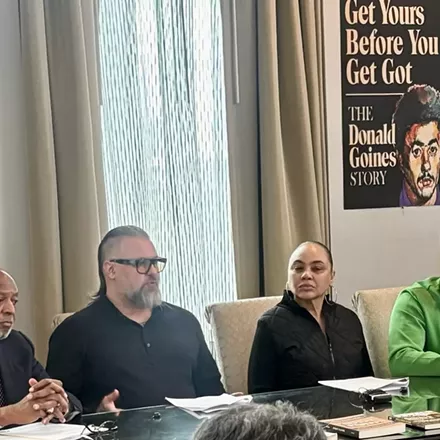If you're watching Gran Turismo in a movie theater, it would be perfectly understandable not to realize that the beginning of the movie isn't just part of the pre-show advertising. Gran Turismo opens with what looks like a commercial for its video-game inspiration, with onscreen text touting the achievements of creator Kazunori Yamauchi, alongside footage of workers at developer Polyphony Digital scanning cars, writing code and testing gameplay for the popular PlayStation racing simulator.
The rest of Gran Turismo only feels slightly less like a commercial, although it's full of promotion for car company and PlayStation owner Sony. Nissan marketing executive Danny Moore (Orlando Bloom) is the driving force behind the plot, which is based on the career of real-life gamer and racecar driver Jann Mardenborough. Rather than directly adapt the video game that has no characters or narrative, Gran Turismo follows another recent video game-inspired film, Tetris, to instead tell a related true story.
So Gran Turismo is really a Jann Mardenborough biopic, and as such it follows the familiar beats of any underdog sports story, as teenage Jann (Archie Madekwe) attempts to translate his skill at playing Gran Turismo into success on the actual racetrack. He's a participant in GT Academy, a publicity stunt that Moore concocts to generate interest in Nissan cars from a younger, video game-playing demographic. Jann's stern dad Steve (Djimon Hounsou), a former professional soccer player, doesn't approve of his son's interest in video games, and, of course, the experienced drivers that Jann faces all dismiss him as a novelty.
The real GT Academy was a long-running reality show, but here it's a private boot camp run by washed-up trainer Jack Salter (Stranger Things' David Harbour), a former competitive driver whose own career was cut short. Harbour leans into every cliché about the grizzled, hard-nosed coach, berating Jann and his fellow GT Academy participants before predictably developing a grudging respect for their skills and perseverance. Harbour gives his all to the weak material, but the result is that he consistently overshadows the bland Madekwe, sidelining Jann in his own story.
Aside from his boilerplate daddy issues and a severely underwritten love interest, Jann also has to deal with guilt over a deadly accident during one of his early races, and the use of a genuine tragic event — from later in Mardenborough's career — as fodder for Jann's hokey triumph over adversity is borderline distasteful. At least that provokes a response, though, which is more than can be said for the blatantly emotional bonding moments, including one built around egregious Sony product placement.
Bloom's entire role comes off as the human equivalent of product placement, just spouting constant exposition and making corporate pitches. The slick, calculating promoter would often be the villain in this sort of movie, but Moore is almost always on Jann's side, and the closest that Gran Turismo has to a villain is a cocky, insensitive driver who issues occasional insults and barely registers as a character. It's hard to care about a sports movie that can't even muster up a decent rival for the protagonist.
Director Neill Blomkamp adds some visual touches that bring video-game aesthetics to the driving scenes, but the racing is mostly repetitive, and the stylization is minimal and understated. Blomkamp has spent his career making bold, unique sci-fi movies, some beloved (District 9) and some maligned (Chappie), but there's no artistic vision to Gran Turismo. It's competent and anonymous, like a presentation that Moore would show to a boardroom full of his bosses. It follows just the right formula to get the approval from upper management and nothing more. ♦






















